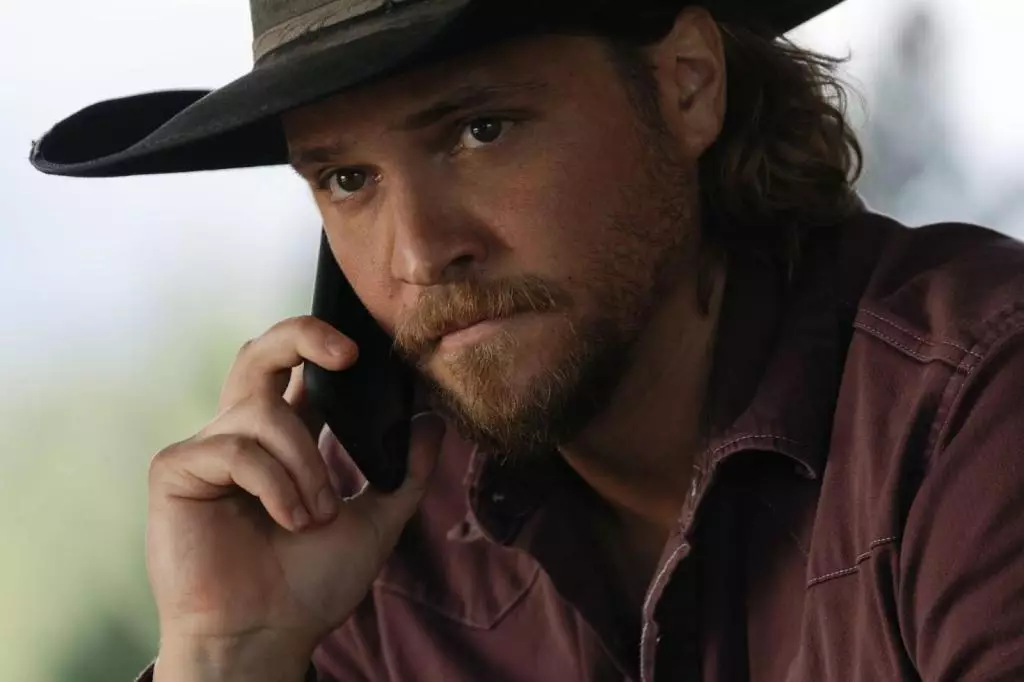Yellowstone, the acclaimed drama centering around the tumultuous Dutton family, is known for its intense character arcs and intricate storytelling. In the stunning episode titled “Counting Coup,” we witness how the family’s dynamics shift in the wake of tragedy and betrayal, exploring themes of loyalty, love, and the inescapable consequences of one’s past actions. At the heart of the narrative, a palpable sense of despair and tumult exists, pushing the characters toward decisions that could resonate for generations.
Beth Dutton (Kelly Reilly), arguably one of the fiercest personalities on the ranch, undergoes a notable transformation in this episode. Traditionally embodying strength and unwavering resolve, she is thrust into a caretaker role as the impact of John Dutton’s (Kevin Costner) death reverberates through the family and staff. This juxtaposition is compelling; as Beth tends to emotional wounds, she is simultaneously wrestling internally with the ramifications of loss.
The narrative cleverly highlights how John’s death casts a shadow over the entire ranch, setting off a chain of events that signifies an inevitable decline. The staff’s response to the profound loss gives viewers insight into their various coping mechanisms while also spotlighting underlying tensions and unspoken fears. Notably, an intimate conversation between Colby (Denim Richards) and Teeter (Jen Landon) hints at love amid chaos, a soft moment amid rampant turmoil, showcasing the human ability to find solace even in dark times.
Interestingly, Jamie Dutton, portrayed by Wes Bentley, remains a merely peripheral figure in this episode. His position as Montana’s Attorney General reminds us that even within a world rife with familial conflicts, constitutional authority and personal safety can collide abruptly. His interaction with detectives investigating Sarah’s (Dawn Olivieri) death illustrates this clash; the tension escalates as Jamie’s privilege meets the relentless pursuit of justice.
As Jamie retreats into a frantic cover-up, shredding any trace of potentially incriminating documents, we witness vulnerability masked in paranoia. This deliberate act of self-preservation stands in stark contrast to the grief that envelops the ranch, emphasizing that the Dutton family’s crisis is both personal and social. Jamie’s predicaments reflect a deeper exploration of identity and allegiance, as he grapples with the threat of exposure while being linked to horrific events surrounding his family.
The episode reaches a grim turning point with the tragic death of Colby, who heroically attempts to save Carter (Finn Little), a young boy brought into the Dutton fold by Beth. The devastating consequences of a simple act of bravery highlight the unpredictable nature of life on the ranch. Colby’s demise feels like a cruel twist of fate, a reminder that even moments of determination can lead to irrevocable loss in this perilous world.
Carter’s desperate action to avenge Colby by killing the horse speaks volumes about the cycle of violence perpetuated within the Dutton legacy. The act of violence is layered—passion, desperation, and retribution converge, leaving viewers pondering morality in a setting where survival often trumps ethical considerations. The horse, left to be devoured by wolves, symbolizes the brutal reality of nature versus nurture, as loyalty and sacrifice spiral into a bitter reality.
Kayce Dutton (Luke Grimes) emerges as a harbinger of vengeance during this episode, driven by the profound sense of injustice surrounding his father’s murder. His confrontation with Grant—John’s assassin—illustrates a moment where familial love crosses paths with primal instincts of retribution. While the encounter is unsettling—highlighted by Kayce’s chilling threat to Grant’s family—his struggle is rooted in the motive to protect his own, making the dilemma all the more poignant.
Beth’s determined pursuit for Jamie’s reckoning underscores the fractured relationships within the family, revealing that unresolved issues simmer under the surface. Her heart-wrenching insistence that she must be the one to “take Jamie to the train station” encapsulates the urgency to address betrayal within their family dynamics.
As we glance toward the final episodes, the narrative sets an ominous tone. Each character seems to be counting not only their losses but the inevitability of betrayal and retribution echoing through the Dutton bloodline. The distinct absence of a cohesive family unit raises the question: can these characters ever truly heal?
In “Counting Coup,” Yellowstone transcends mere drama; it delves into the intricacies of loyalty, the scars of betrayal, and the harsh realities of mortality within a world shaped by violence and power. As darkness descends upon the Dutton ranch, the audience is left grappling with the question of redemption and the costs intertwined with familial allegiance.


Leave a Reply